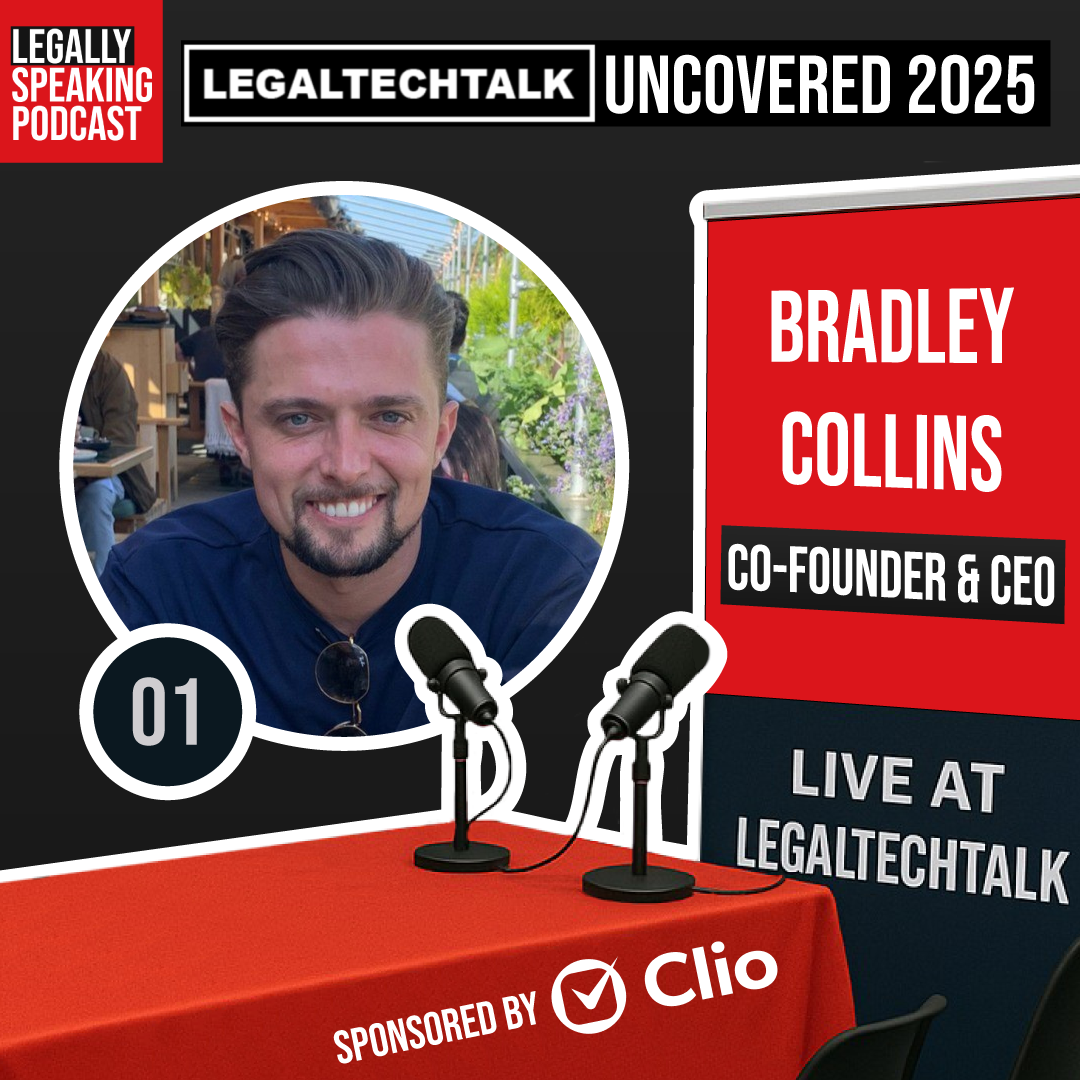
LegalTechTalk Uncovered 2025 – Bradley Collins – E01
🚨 BREAKING NEWS: CEO of LegalTechTalk Shares What You Can’t Miss at #LTT25 🚨 🎤 This

The ‘Fertility in the Workplace’ Miniseries, featuring Emma Menzies delves into how fertility in the workplace can be addressed more openly and how law firms can do a better job at acknowledging the challenges faced around fertility. The series looks into tackling fertility issues as a lawyer, in addition to family planning and becoming parents.
Emma Menzies is a Coach and founder of Ready Steady Coach, a specialist business focusing on helping professionals facilitate career fulfilment whilst experiencing fertility challenges.
Emma’s background is in employment law and the bulk of her experience comes first-hand from working as an employment lawyer at Eversheds and Marks and Spencers.
In the third minisode of the series, Rob and Emma discuss the following:
00:06 Robert Hanna:
Welcome to the Legally Speaking Podcast. I’m your host Rob Hanna. I’m delighted to bring you all the Fertility in the Workplace miniseries. This miniseries delves into how fertility in the workplace can be addressed more openly, and how law firms can do a better job at acknowledging the challenges faced around fertility. The series looks into tackling fertility issues as a lawyer, in addition to family planning and becoming parents. This week we’re going to delve into fertility at work coaching and how it can help with not only your fertility, but also how to juggle work at the same time. And we have the pleasure of being joined by a very special guest, Emma Menzies. Emma is a coach, a neuro-linguistic programming practitioner. Previously, Emma worked as an employment lawyer at Eversheds Sutherland, and Marks and Spencers. Emma’s personal and professional background lends her focus on fertility at work. Emma assists clients to develop a clear sense of purpose, balancing priorities and regain control of their career. Ultimately, Emma encourages the idea of women having a career which compliments the pursuit of motherhood and family. So a very warm welcome, Emma.
01:15 Emma Menzies:
Well, thank you very much for having me, it’s really great to be here. I am a coach. I’m formerly an employment lawyer, and also fertility patient. And I help people to manage the impact that their fertility challenges are having on their career and their working life. And I also work with organizations to help them to manage fertility in the workplace and support their employees who are dealing with fertility issues.
01:43 Robert Hanna:
And thank you so much, once again, and you know, you do such amazing work, you know, let’s learn a little bit more about your journey. How did you get into this?
01:51 Emma Menzies:
Like I said, earlier, I was an employment lawyer previously, and it was while I was working in this capacity for Marks and Spencer that my own fertility journey started. And all the lawyers out there know how demanding that career can be, there can be a lot of pressure, a lot of expectation on your shoulders, a lot of demands, and it was full time. And I was doing that alongside my fertility journey. And I found it really difficult to manage the two, the fertility journey itself is very all consuming, and felt like another full time job. And, you know, logistically, practically, it was really difficult when I had lots of appointments, lots of places to be, and things to do, taking medications, and so on. And mentally and emotionally, it was really a struggle as well. And I found that there would be times when I was really holding back in my career. And then, you know, when things weren’t going anywhere with the fertility stuff, I’d feel very much in limbo and getting very frustrated. And there’d be times when I’d be pushing forward in my career, and then I’d be worrying that I was jeopardizing my fertility or, you know, not giving that enough time and attention. So there was always this feeling of conflict, like I wasn’t doing any of these things that were important to me well enough. And then I was failing at both of these things as well. And I increasingly just became more anxious, more withdrawn, more lacking in confidence, or was worrying about what other people were thinking, always feeling like I wasn’t doing good enough doing anything well enough. I was worried about my future prospects, both on the fertility journey, and in my career was, you know, increasingly crying in the loos, if I could even make it to the loos, I’d be in tears. And it was a real, real struggle. And after six years of this, I eventually burnt out. And it was then sort of, with some distance, and looking back on that, that I saw as, as somebody who had been through this, that there was a gap in support, not just in my organization, but everywhere, and as an employment lawyer as well. So there was a gap in the support as an employment lawyer, in over 13 years of practice. I hadn’t been advising on this issue. And I knew by this stage that it wasn’t because it wasn’t going on. I knew, I knew the stats, and it was one in six couples. I knew it was 1 in 4 pregnancies ending in miscarriages and it was the LGBTQ community, that the people who are single who were having all of these struggles as well. So it was a bit of a kind of lightbulb moment for me at one stage where I just realized, here’s this gap. And I have this experience of the workplace from employment law background, I have all of this personal experience. And now at this stage, I had coaching qualifications as well. And I just thought I can bring this all together. And I really want to bring this all together to be able to help other people and help other people who are struggling the way that I had done and help them to be able to be happy and healthy and fulfilled on their journey and really plug that gap where fertility and work come together.
05:04 Robert Hanna:
Yeah, and thank you so much for, for sharing so, so openly with us there, because I know this is going to help so many people out there listening in today and you touched on coaching. I want to sort of tread on that specifically, how does that help?
05:18 Emma Menzies:
Well, to talk about how it helps I probably need to talk about why maybe in the first place we can find ourselves suffering Iin the way that I did, and the way I commonly seen my clients do. And there’s a distinction there to be made between what I’m calling suffering and what I’m going to call pain. Because, you know, obviously, I don’t know why people are on their fertility journey. And there’s a whole host of pain and trauma that can come with that, with the diagnoses, the, the losses, all of the disappointments, and that’s, that’s not for coaching. And that’s not what I’m talking about here. But what I’m talking about in suffering is what happens next, it’s when we respond to that. And it’s when we find ourselves in this stuck and struggling two states that I was just talking about. Because behind that, generally, there is a set of thoughts, the stories we tell ourselves, a certain narrative and meaning that we give to things that, is shaped by our values, our beliefs, or attitudes, our experiences, our memories, all of the things that make us who we are that we’ve got from our family, friend, communities, cultures, religions, and so on. And these thoughts then make us feel a certain way, which make us behave a certain way, which make us experience life in a certain way. And all of this isn’t our fault. It happens on autopilot, it’s part of our conditioning. It’s habitual. But to give you an example of that, in practice, if you were somebody who, for example, believed that you would be a burden to your organization, to your manager, to your team, if you were to have IVF. And your line manager said to you, I’ve arranged to cover for a week while you’re having fertility treatment, you might then think, that they don’t value any me any more, they’re going to replace me, they don’t want me. You know, I’m not worth, worthy of this. I’m taking up the resources, and that might create feelings of guilt, of worry, of lack of worth, of insecurity, that might make you behave in certain ways, like, for example, say, no, don’t worry, you don’t need to cover I’ll do it, or pushing extra hard to prove yourself. And, again, as I say, this isn’t our fault, it’s something that happens quite habitually. But where coaching comes in. One thing that coaching can really help with, is to spot those patterns, those habitual ways of thinking and operating to draw awareness to the set of thoughts, that kick starts all of this, and challenge it and explore it, and therefore open up new perspectives and different choices. So that you can feel differently, behave differently, and therefore, experience life differently. So to go back to that example, it could be that with a bit of coaching around whether those beliefs are really true, and what else, certain situations might mean, you might find yourself thinking, my, a good employer, or a good line manager would support me to manage my work in conjunction with my life priorities, so that when the line manager says, I’ve got cover for you for a week, while you have IVF, you feel supported, you feel relief, and then perhaps the behavior is to graciously accept that support. And, and therefore the, the experience is one that’s very different. And you can do that yourself. It sounds very straightforward, but it, it isn’t easy, it’s a skill, and you can work on it. And I share tools with my clients to, to help them work on it themselves. And if anyone’s listening to this thinking that would be useful for them, I’m really happy to share that with them. You can go to my website, readysteadycoach.com and nd drop me an email and I’ll send that to you. But it only takes you so far, which is why coaches always have their own coaches as well. You know, having that support to raise your awareness and help you explore these patterns is a really useful way of getting out of these stuck states that we do find ourselves. So I would say that’s a big way that coaching helps, but it goes beyond that as well, to really getting rid of all of the shoulds, musts or thoughts that we have in life and coming back to ourselves and what it is what that we really want, what it is that we really need, what works well for us, what doesn’t, so that you can find your track and you can find your strategies for keeping you on track and you can have the confidence and the courage to take action. And all the while you have your coach there as your cheerleader, as the person for accountability and as the sounding board and it becomes really powerful these conversations to move you forward. And that’s really for me what gets you out of stucking, struggling in the way that I was to, to really being able to live a life that’s happy and fulfilled and regaining control of both the career fertility journey and how they’re working together.
10:31 Robert Hanna:
Yeah, and again, thank you so much for, for giving so much context around the, the benefits of coaching and how it can help, and again, some, some of your journey there. I just wanted to drill down again, more specifically related to coaches. I love that you brought up the fact that, you know, coaches should have coaches themselves, but how does, you know your fertility at work coaching differ from other fertility or career coaching that might be out there?
10:55: Emma Menzies:
Yeah, so fertility coaching, certainly in my experience is a lot more geared towards this goal of becoming a parent and supporting you through the processes that you might be engaged in to get you to that point of being a parent. Career coaching, and, you know, outside of my specialism of fertility work, I do career and executive coaching as well. And obviously, that’s geared around careers, but you can’t look at a career without looking at other aspects of life as well and how they work together. But fertility is such a big topic on its own. And it’s really complex and requires, I think, more sort of knowledge and expertise than might normally sit within a career coaching on it, so and so. Fertility work coaching really falls between the two, or at least draws on the two. I think it draws together an expertise from fertility and from career. And it’s not, it’s not so much about get the baby or get the career, it’s about making these two worlds work together in a way that works for you. And the focus being on actually just being happy now, being healthy now and being fulfilled now.
12:08 Robert Hanna:
Yeah, no, really, really well said. And thanks so much for, for highlighting those those differences there. And I guess sticking with some some differences, how does it differ from other perhaps holistic support that might be available out there?
12:19 Emma Menzies:
Well, I mentioned earlier that there was this difference between what I was calling pain and trauma and, and suffering. And I said, you know, coaching isn’t for the pain and the trauma. And I think that and that does require grieving, and it does require healing, you want to be looking more towards other therapists, counselors, psychotherapist, hypnotherapists. You know, coaching isn’t a therapy, it can feel very therapeutic, but it isn’t a therapy. And it’s also very forward looking. I talk about coaching, like driving a car where you want to be somewhere and most of the time, you’re looking at that front window to get there. But occasionally, you glance back out the back window and sides out the rear windows to pick up information to help you go forward. Whereas with some of these other therapies, you can spend more time looking back to where you ended up where you are, which is not what you do in coaching. So that’s a key difference. And you may also come across mentors quite a bit in careers in particular, where you have people telling you, I did this, try this, do that, hints and tips based on somebody’s own experiences. But with, with coaching, it’s a lot more drawing out from you what is right for you, rather than doing what somebody else has done. It assumes that what works for one person doesn’t always work for another. So they are all valid support. It’s really about finding, finding what’s right for you. And actually, on that point, I do come across regularly and I made these mistakes myself, two big mistakes that people tend to make. One is not asking for help at all, and the other is doing too much. And trying to do everything and of course trying to do it all perfectly. But on they’re not asking for help side of things, you know, I commonly see people on the fertility journey, investing a whole, whole lot of resources, money and time on the fertility clinics, and they’re trying to get pregnant, which I’m not knocking because I absolutely do that myself as well. But then there’s all these narratives in these stories that we have about then investing in ourselves, you know, like, it’s selfish, or it’s indulgent to invest in ourselves, or I don’t have the money to invest in myself or, you know, I’ve got to keep the money for the fertility treatment and all of this going on when actually we are the vessel for this baby we’re trying to bring into the world or and or the parent, the future parent. And, I, my personal experiences definitely that when I’ve used these other ways of investing myself, these are the ways of getting my help, more help. I’ve ended up a better person living a better life. It’s been fantastic. It’s been worth the investment, even if it hasn’t necessarily meant becoming a mother yet. It’s certainly been a great investment. So I think sort of, you know, do a bit of coaching there to challenge the stories you might be telling yourself around getting help and maybe think it’s a sign of weakness and so on, but I really do sort of encourage that, but then not flipping into this other thing, which is trying to do everything, because I do think it can get quite overwhelming on a fertility journey as well, where you hear all of this is, you should do this, you should do that, try the coaching, try the counseling, try the acupuncture, the reflexology, and all of these things. And it’s quite easy to fall into the trap of the stories, again, the things that we tell ourselves around, I have to do everything and have to do it all really well to be deserving of this baby I’m trying to make or to know that I’ve done everything, to be, to get it. And then we just burn ourselves up trying to take everything off the to do list. And it’s much better, I think, again, apply a little bit of coaching there to think about what works for you and what feels right for you and see it more of a bit of a buffet table of options and pick the ones that look appealing and then go back for seconds if the grid and don’t go back if they’re not so good and approach it in that way. But absolutely do seek these other ways of getting support, but be very balanced about as well and approach it with the kind of energy, of wellbeing and doing good rather than, oh, it’s another thing that I have to cross off my to do list to be perfect.
16:33 Robert Hanna:
Yeah, and I think there’s some really, really good advice there. And, you know, particularly you know, perhaps people not wanting to ask for help or keeping things bottled up or as you say, then going the other way and doing too much, and then the overwhelm kicks in. So this has been fantastic Emma. I really enjoyed learning. And thank you so much for being so open sharing your journey and all the work that you’re doing to help people in this space, particularly, you know, off the back of tough times through the pandemic, and so forth. The more you can help people and get this message out there, the better. On that I know you touched on your website a little bit earlier. But if people are interested or want to get in touch with you for more information, what’s the best way for them to do that? Feel free to re-mention your website and any social media handles and we’ll share this, with this particular episode too.
17:15 Emma Menzies:
And yes, you can contact me via my website readysteadycoach.com. And also the other best place to find me is on LinkedIn, my handle is Emma Menzies. So do connect with me there as well. That’d be great.
17:28 Robert Hanna:
Fabulous. Well, thank you so much, once again for featuring today. And we really, really appreciate it from all of us on the Legally Speaking Podcast over and out.
17:41 Robert Hanna:
This week’s review comes from Max1998. He says excellent podcast, what a podcast, very educational and informative such an easy podcast and listen to along the way. Keep up the content and keep it coming. Thank you so so much Max. We really appreciate your kind words from all of us on the Legally Speaking Podcast. Thanks a million.
You may also tune in on Goodpods, Apple Podcasts, Spotify, or wherever you get your podcasts!
Give us a follow on X, Instagram, LinkedIn, TikTok and Youtube.
Finally, support us with BuyMeACoffee.
🎙 Don’t forget to join our Legally Speaking Club Community where we connect with like-minded people, share resources, and continue the conversation from this episode.
Sponsored by Clio – the #1 legal software for clients, cases, billing and more!
💻 www.legallyspeakingpodcast.com
📧 info@legallyspeakingpodcast.com
Disclaimer: All episodes are recorded at certain moments in time and reflect those moments only.

🚨 BREAKING NEWS: CEO of LegalTechTalk Shares What You Can’t Miss at #LTT25 🚨 🎤 This
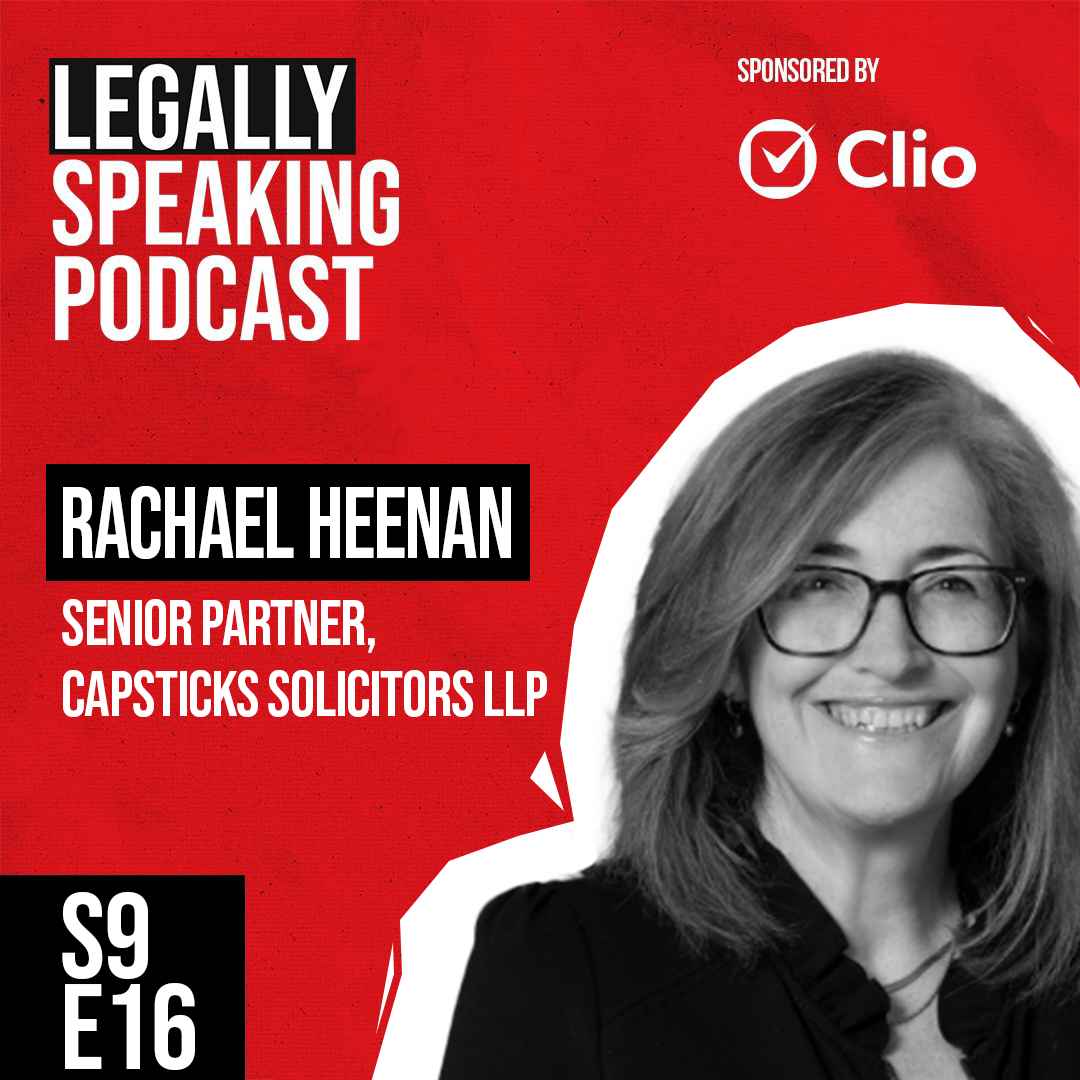
On today’s Legally Speaking Podcast, I am delighted to be joined by Rachael Heenan. Rachael is
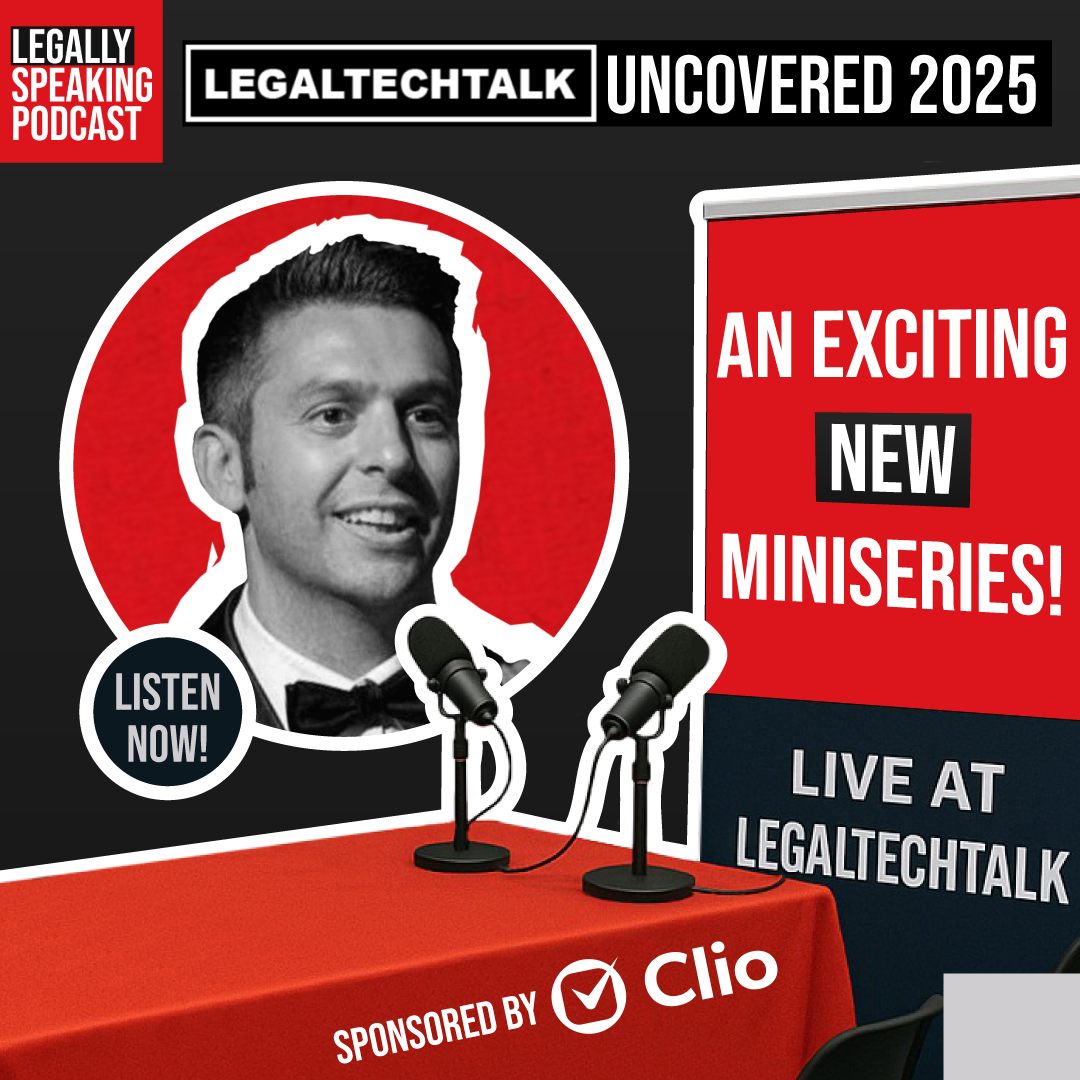
We’re bringing the heat to LegalTechTalk 2025 🔥 The Legally Speaking Podcast ™️ — proud returning
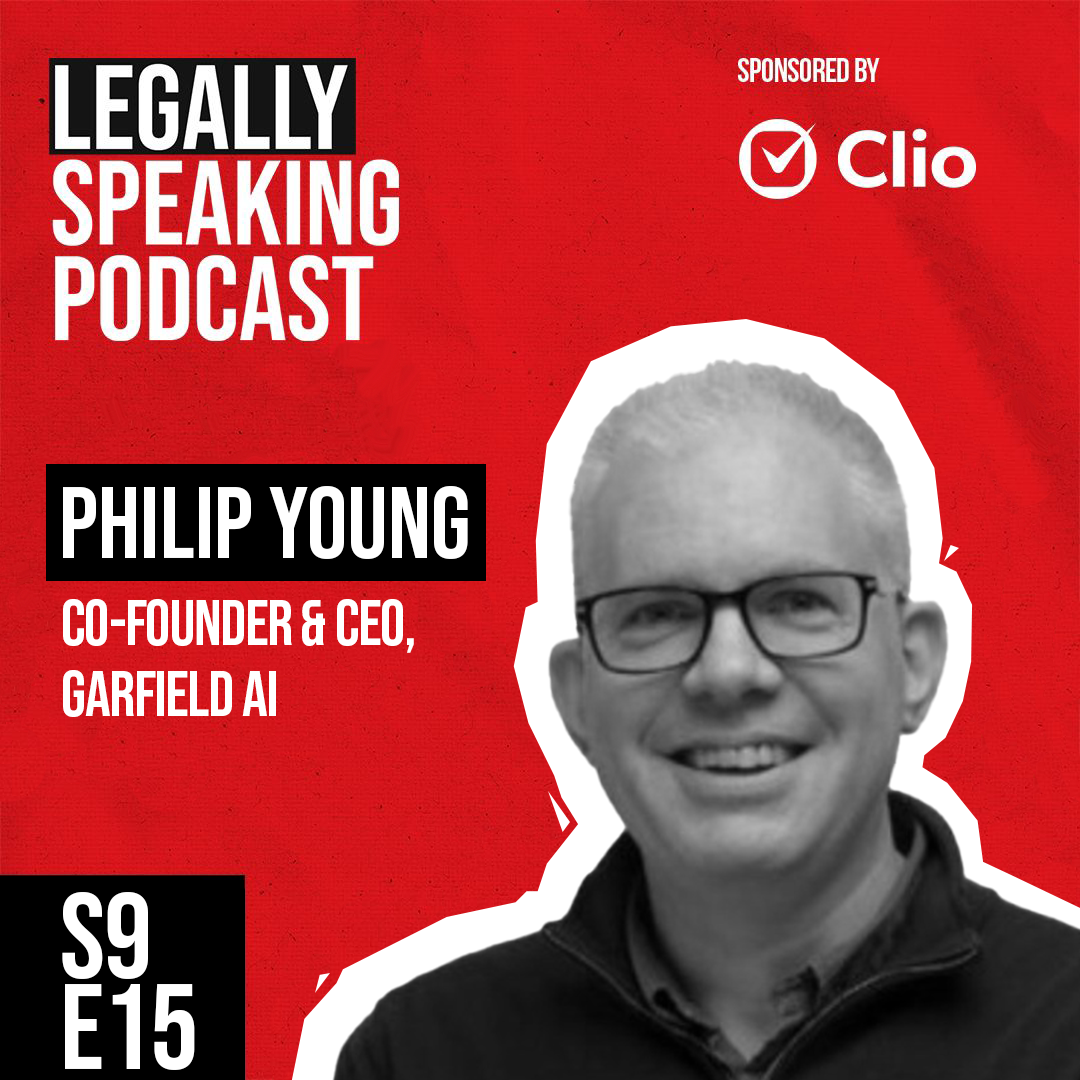
On today’s Legally Speaking Podcast, I’m delighted to be joined by Philip Young. Philip is the
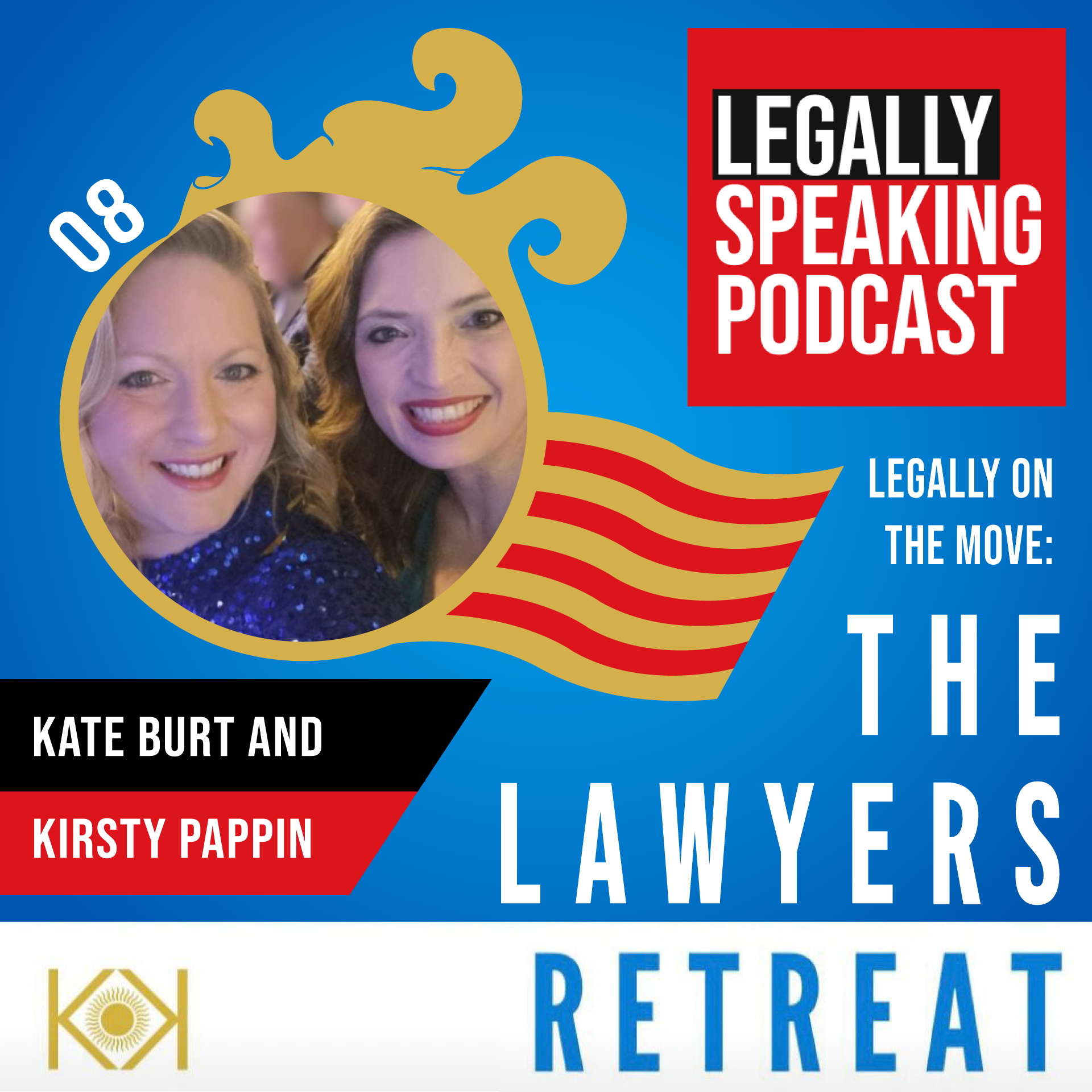
We’re proud to be the official media partner for the first-ever edition of The Lawyers Retreat,

We’re proud to be the official media partner for the first-ever edition of The Lawyers Retreat,

*DISCLAIMER* All episodes are recorded at certain moments in time and reflect those moments only. The podcast does not support or associate itself with any inappropriate behaviour or actions that may have occurred after recording.